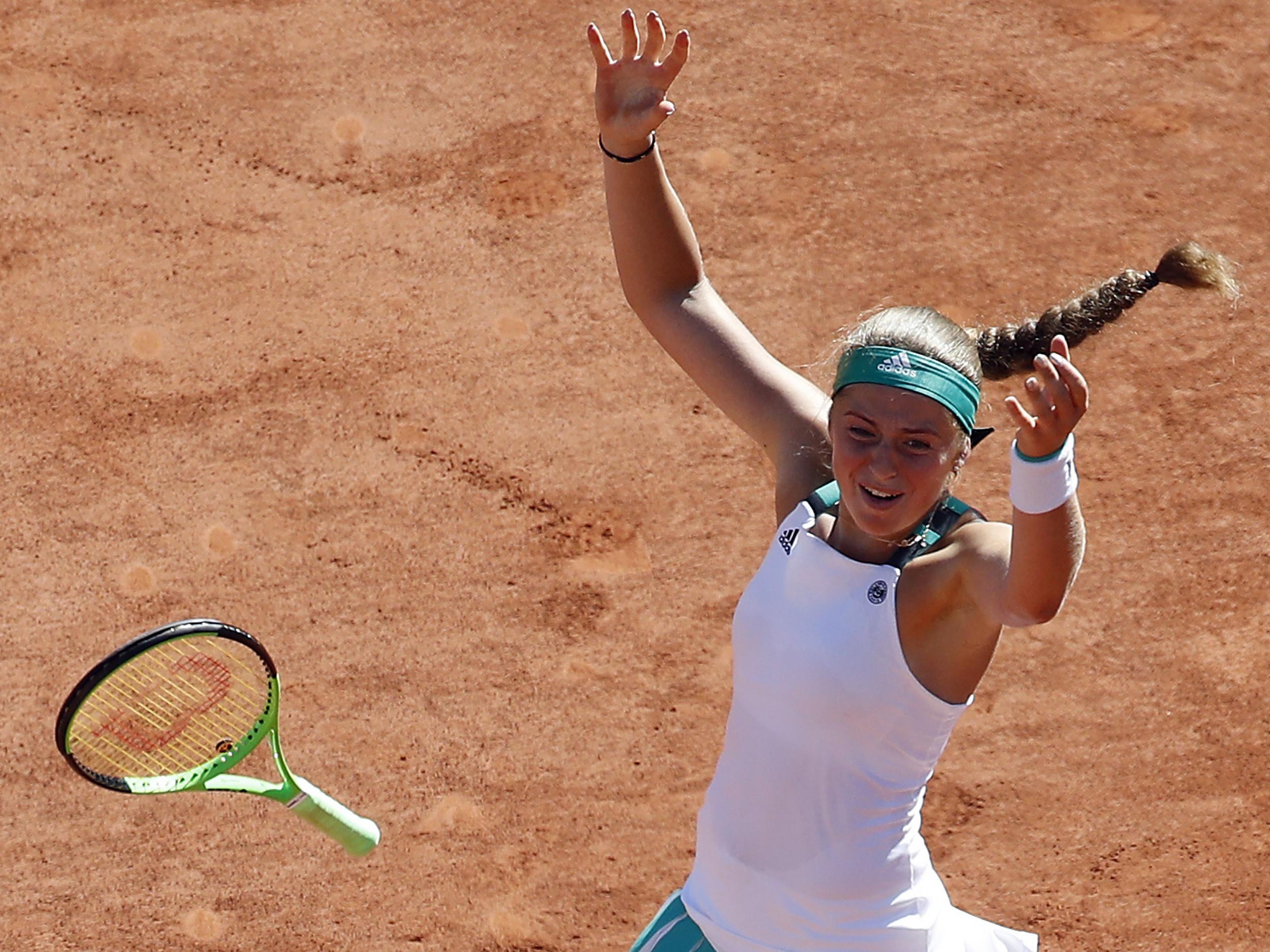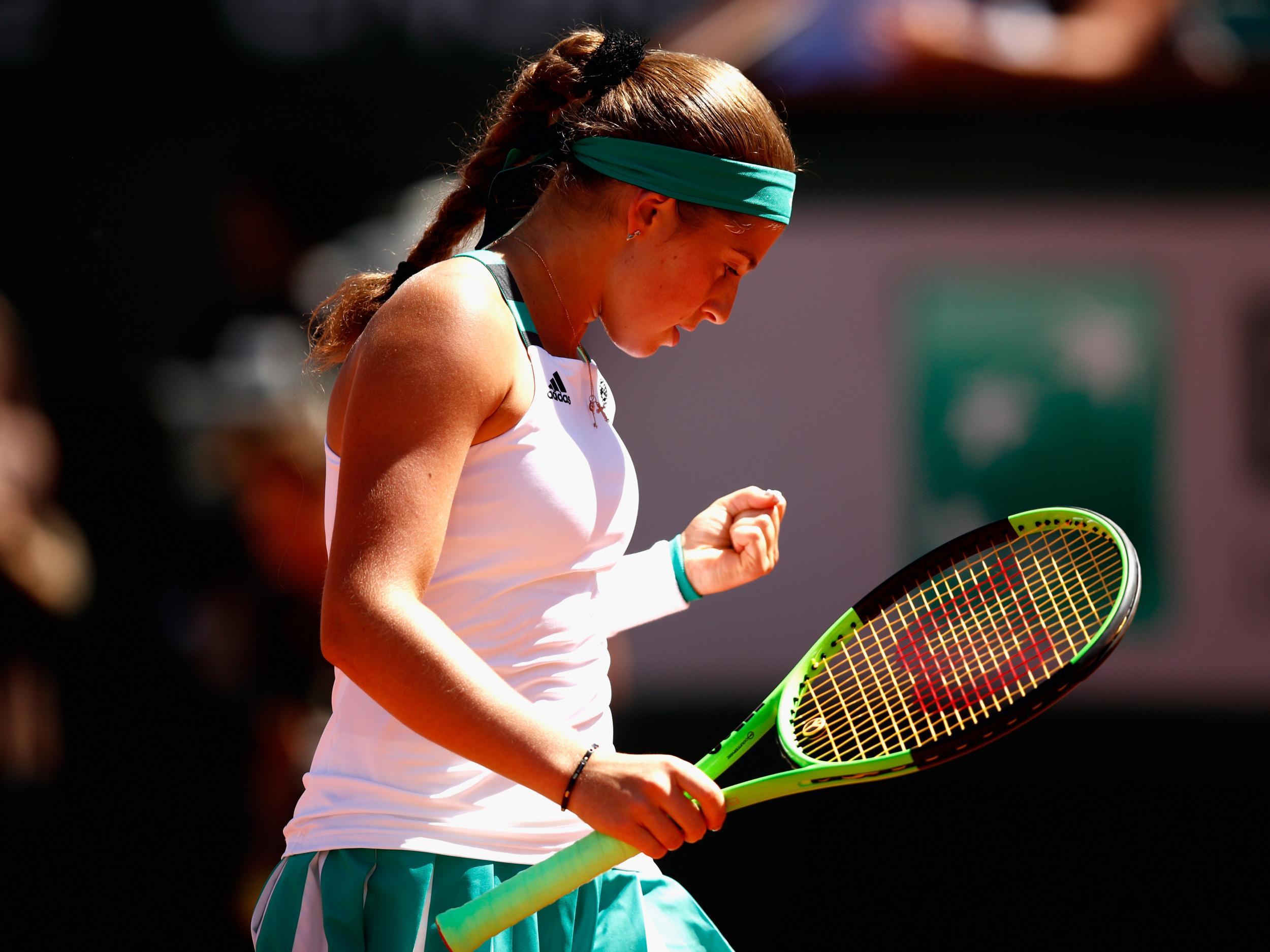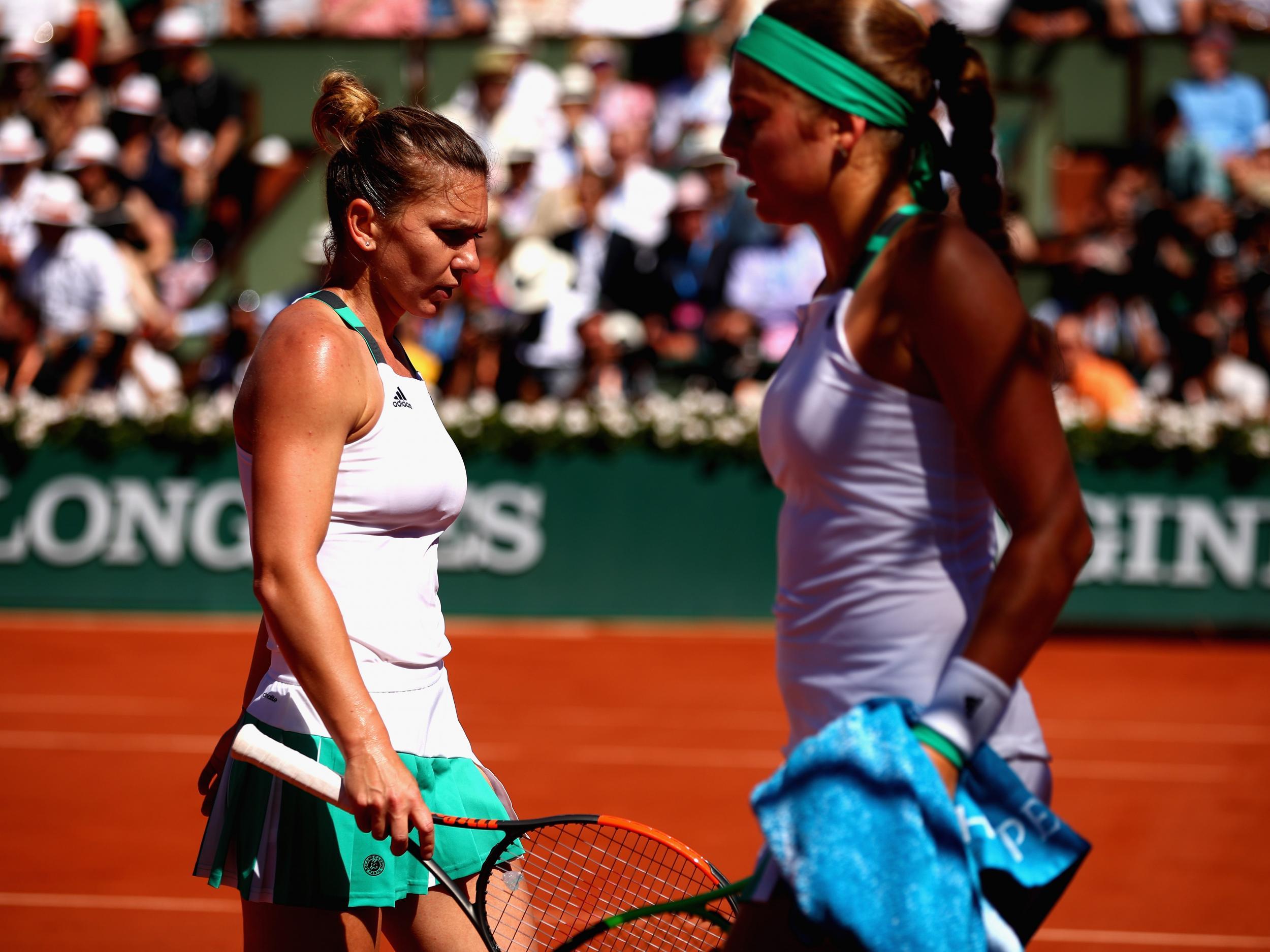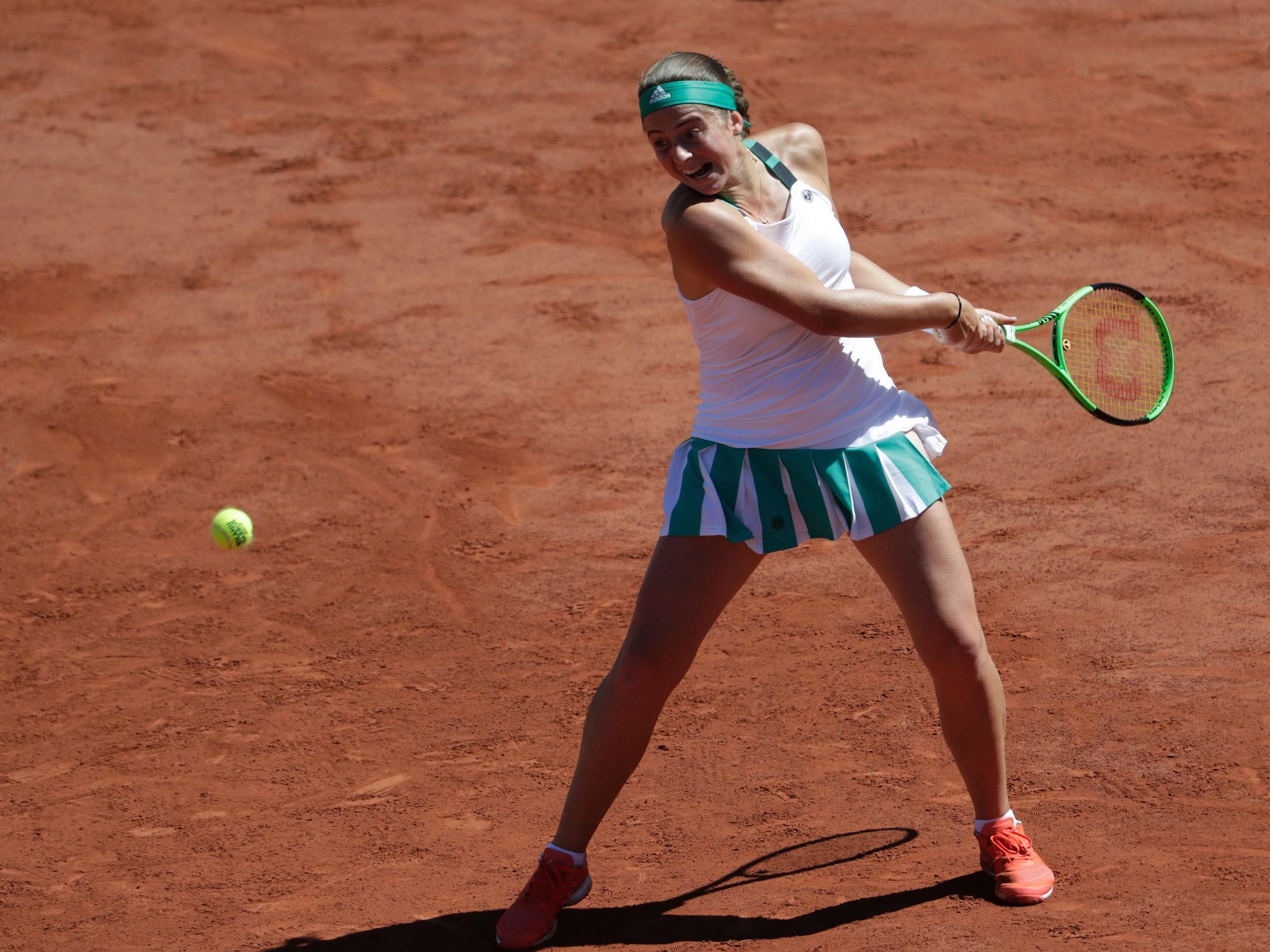Jelena Ostapenko beats Simona Halep to become youngest French Open champion for 20 years
The Latvian won in three sets at Roland Garros 4-6 6-4 6-3

This had been billed as the most open women’s Grand Slam tournament in years, but who on earth would have guessed that the new champion of Roland Garros would be an unseeded 20-year-old Latvian who had never won a title on the main tour and had never even won a match here?
One of the most remarkable stories in the history of women’s tennis continued to the very end as Jelena Ostapenko won the French Open on a glorious afternoon in Court Philippe Chatrier. Simona Halep, who would have risen to the top of the world rankings by winning the title, took the first set of the final and led 3-0 in the second, only for Ostapenko to hold her nerve, keep faith in her relentlessly attacking game and win 4-6, 6-4, 6-3 after an hour and 59 minutes.
The first unseeded player to win the Suzanne Lenglen Cup since Britain's Peggy Scriven in 1933, Ostapenko became the first Latvian to win a Grand Slam title and the first woman to secure her maiden tour-level title at a Grand Slam event since Barbara Jordan at the 1979 Australian Open. The last player of either sex to win their first tour-level title here at Roland Garros was Gustavo Kuerten, who won on 8 June 1997, the day Ostapenko was born.
“I still can't believe I won,” Ostapenko told the crowd afterwards. “It was always my dream, when I was a child and I was watching players here. I'm just so happy. I've just enjoyed it so much. I have no words.”
At the presentation ceremony Halep told Ostapenko: “"All the credit for what you’ve done. It’s an amazing thing. Enjoy, be happy, and keep it going, because you’re like a kid.”

Ostapenko has been coached by her mother but in recent times has taken on the former Spanish player, Anabel Medina Garrigues. The Latvian’s winning cheque will almost double her career prize money to $2.38m (£1.87m); in comparison, Serena Williams’ career earnings currently stand at $84.5m (£66.3m).
The world No 47 celebrated her 20th birthday only four days ago and is the youngest champion at Roland Garros since Iva Majoli in 1997. Following Petra Kvitova and Garbine Muguruza, she is just the third woman born in the 1990s to win a Grand Slam singles title.
This was only Ostapenko’s eighth Grand Slam tournament and just her second appearance in the main draw here. On her debut 12 months ago she lost in the opening round.
What has been even more remarkable about her triumph is the way she has achieved it. Ostapenko, who will climb to No 12 in Monday’s updated rankings list, is a fearless ball striker who goes for her shots at every opportunity and strikes the ball with stunning power.
She hit a total of 299 winners in this tournament, including 54 in the final (along with 54 unforced errors). Halep, in contrast, hit a total of 126 winners in the tournament, including just eight in the final, in which she made only 10 unforced errors.

Few Grand Slam champions in history have gone for broke in the way that Ostapenko does, but she can also keep a cool head in tight situations. The way she won the second set was typical. At the end of a pulsating rally in which both players had pulled each other to different corners of the court, Ostapenko hit a beautifully measured forehand winner down the line, which had more to do with accuracy and control than simple power.
Court Philippe Chatrier loved every minute of it, the stadium regularly echoing to chants of “Jelena! Jelena!” Ostapenko played up to the crowd, fist-pumping in celebration of winners and never holding back on her emotions when she made mistakes as she bounced her racket on the ground or slapped her thigh in frustration.
Ostapenko’s lack of nerves were evident in the very first game, in which she broke Halep to love with three big backhands and a smash. The first set tipped one way and then the other, but when Ostapenko served at 4-5 she went for one winner too many on set point and hit her forehand beyond the baseline to hand Halep the advantage.

The world No 4, who had lost to Maria Sharapova in her only previous Grand Slam final here there years ago, appeared to have taken control at the start of the second set, but Ostapenko saved three break points when she trailed 0-3 and then won six games in a row to level the match.
Halep, nevertheless, went 3-1 up in the decider, only for Ostapenko to fight back once again, even if luck was on her side when she broke to lead 4-3. On break point her backhand down the line appeared to be going wide, but it struck the top of the net and dropped into the court on Halep’s side.
Ostapenko held firm to go 5-3 up and at 30-30 in the following game she cracked a backhand return winner to go to match point. There would be no holding back now and the Latvian clinched her victory in typical fashion by pounding another backhand return winner down the line. She is the first woman to have won the singles final here after losing the first set since Jennifer Capriati in 2001.
Halep admitted afterwards that she had been “sick in the stomach with emotion”. She added: “Maybe I was not ready to win it.”
Join our commenting forum
Join thought-provoking conversations, follow other Independent readers and see their replies
Comments
Bookmark popover
Removed from bookmarks